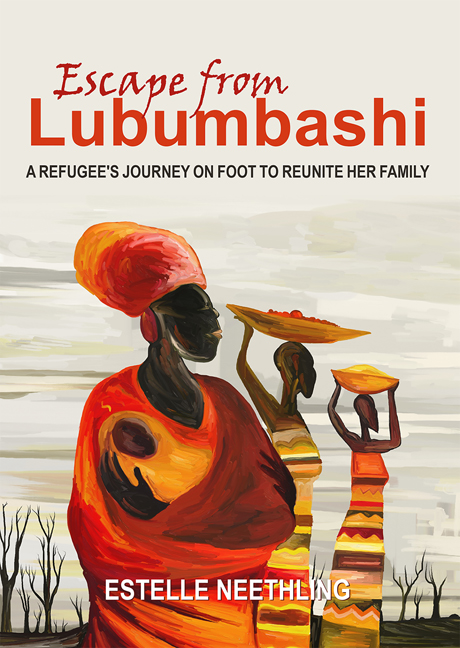4 - Nkudimba's fallen hero and his living nemesis
Summary
Initially, when we started our journey together, Adolphine had been reticent about the Congo's history that had affected her life and that of her entire family so profoundly, but on a winter's morning in 2012 for a while she was tranquil and lost the haunted look that often marked her features when she spoke freely about her memories and perceptions.
“My father was fourteen when the Congo gained independence in 1960. When my siblings and I were older he would tell us about the politics of the land at the time, especially about the assassination in January 1961 of Patrice Lumumba, who was such a revered freedom fighter – a leader who was to become the country's first and only democratically elected prime minister.”
Together, over cups of rooibos tea, bran rusks – and lots of water which I soon discovered Adolphine favoured above tea and coffee – she and I charted the tragic circumstances which led to the end of the life of Patrice Lumumba, the man her father had so admired, and the rise to power of his successor whom history has identified as one of the central characters in the plot to kill him.
Lumumba had only been prime minister of the Republic of the Congo for six months when his life was cruelly cut short. When they became old enough to understand, it became clear to Adolphine and her siblings that Lumumba, and all he stood for, had inspired their father in the life of integrity he chose to lead. Patrice Lumumba's assassination has been described by Ludo De Witte, the Belgian sociologist and author, as “the most important assassination of the 20th century”.
I felt compelled to unearth additional historical information about the many woeful twists and turns of the Congo's history because of Adolphine's awareness of how the political unrest that had plagued her country had been a feature, not only of the lives of her immediate family, but also of those of her parents and grandparents.
The year 1959 proved to be a crucial one in the Congo. In January there was widespread unrest; many died as a result. The Belgians could no longer ignore the tide of history and accepted the objective of independence, but they took their time about doing so.
- Type
- Chapter
- Information
- Escape from LubumbashiA Refugee's Journey on Foot to Reunite her Family, pp. 17 - 24Publisher: University of South AfricaPrint publication year: 2021



